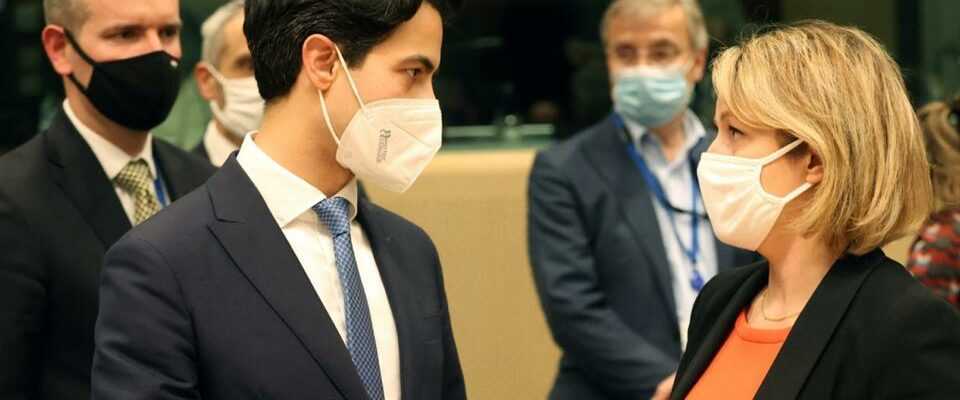A meeting with European energy ministers has been scheduled for Monday 2 May to address the EU’s energy dependence on Russia.
In line with Vladimir Putin’s statement last month, Bulgaria and Poland were sanctioned with an immediate gas cut for failing to pay for delivery in rubles on Wednesday.
European Commission President Ursula von der Layen reacted by saying that Poland and Bulgaria were supplied by “their EU neighbours”. She also denounced “a new attempt by Russia to blackmail us with gas”, while affirming that the EU was “prepared for this scenario”.
It comes as no surprise that the Kremlin uses fossil fuels to blackmail us.
This is something the @EU_Commission has been preparing for, with Member States and international partners.
Our response will be immediate, united and coordinated.
https://t.co/hUc7DzGfd5
—Ursula von der Leyen (@vonderleyen) April 27, 2022
“We will ensure that Gazprom’s decision has the least possible effect on European consumers (…) We are developing our coordinated European response. Europeans can be sure that we are united and in solidarity with the Member States affected,” said Ursula von der Layen during a press briefing.
Following the stoppage of Russian gas deliveries to Poland and Bulgaria, Europeans remain united and united.
I will bring together my counterparts on Monday afternoon for an extraordinary session of the Council of Ministers in charge of energy. #PFUE2022 https://t.co/Cy0GwXeNId
— Barbara Pompili (@barbarapompili) April 27, 2022
In fact, the French Minister in charge of the Ecological Transition Barbara Pompili announced on Wednesday evening the holding of an “extraordinary session of the Council of Ministers in charge of energy” with all the member countries represented this Monday, May 2 . The objective will be to find alternatives to the Russian supply, which in 2021 represented nearly 45% of natural gas imports into the EU.
“REPowerEU” objective
To solve the EU’s energy dependence on Russia, the European Commission has implemented an action plan called REPowerEU. The latter aims to reduce the supply of Russian gas by two thirds by the end of the year, then to do without it definitively by 2027.
To do this, the European body has planned a diversification of the gas supply thanks to an increase in imports of liquefied natural gas and an increase in the production of biomethane and hydrogen. The other part of this plan has a more ecological scope since it aims to increase the use of renewable energies and strengthen energy efficiency to limit the use of fossil fuels.
With this strategy in place for several months, gas deliveries from Russia fell by 25% in the European Union between the end of 2020 and the same period in 2021.
